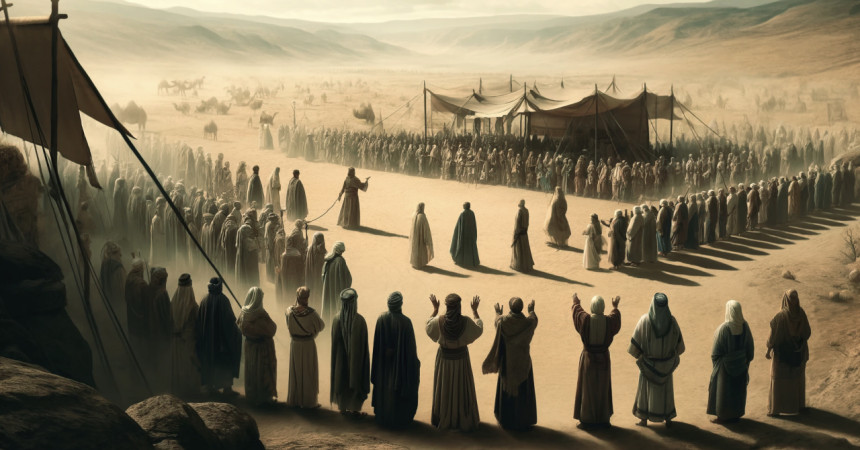1 | 2 | 3 | 4 | 5 | 6 | 7 | 8 | 9 | 10 | 11 | 12 | 13 | 14 | 15 | 16 | 17 | 18 | 19 | 20 | 21 | 22 | 23 | 24 | 25 | 26 | 27 | 28 | 29 | 30
A community that was under siege, ostracised, and cut off from the world for simply holding a different belief — this was the harsh reality faced by Prophet Muhammad ﷺ and his followers during the boycott of Banu Hāshim.
In a calculated move to silence their message, the Quraysh leadership ostracised the entire clan, forcing them into a confined valley for three gruelling years. To make it worse, they would buy all the food that entered Makkah, lest it enter the hands of Banu Hāshim.
“…the Quraysh tribe and Bani Kināna concluded a contract against Banu Hāshim and Banu `Abdul-Muttalib or Bani al-Muttalib, that they would not intermarry with them or deal with them in business until they handed over the Prophet ﷺ to them.” [1]
This wasn’t just any small test of endurance; it forged the character of the early Muslim community.
The Messenger ﷺ suffered
The Prophet himself (ﷺ), along with his family and closest companions, were deprived of necessities and social interaction.
He (ﷺ) even suffered from his uncle Abu Lahab joining the ranks of the enemy! Not only was he in agreement with the boycott, he previously made his two sons divorce the daughters of the Prophet ﷺ.
Yet, amidst this hardship, a remarkable display of strength unfolded. The Banu Hāshim held steadfast and their faith and sense of community served as a source of courage.
Key takeaway from the boycott
Patience is certainly power, as the Prophet ﷺ and his followers endured the boycott with remarkable composure.
As Allah reminds us,
“Do people think that they will be left alone because they say: ‘We believe’, and will not be tested?” [2]
Likewise, as the Messenger ﷺ said,
“How wonderful is the affair of the believer, for his affairs are all good, and this applies to no-one but the believer.
“If something good happens to him, he is thankful for it and that is good for him.
“If something bad happens to him, he bears it with patience and that is good for him.” [3]
This hadīth beautifully encapsulates how the believers deal with adversity, like the believers of Banu Hāshim did during these three years.
They found a way to embrace the good and bad and endure the hardships, ultimately emerging stronger as individuals and as a community.
Action points
-
Ramadan is hours away from leaving us behind, let this series encourage you to see a way to come out stronger through struggles.
-
Let us remember those who are being blockaded and isolated in their own way around the world, Muslims or otherwise.
-
Consider making an investment in Islam21c, and sharing the transformational content that we produce.
1 | 2 | 3 | 4 | 5 | 6 | 7 | 8 | 9 | 10 | 11 | 12 | 13 | 14 | 15 | 16 | 17 | 18 | 19 | 20 | 21 | 22 | 23 | 24 | 25 | 26 | 27 | 28 | 29 | 30
Source: Islam21c
Notes
[1] Sahīh al-Bukhārī, 1,590; https://sunnah.com/bukhari:1590
[2] al-Qur’ān, 29:2
[3] Sahīh Muslim, 2,999; https://sunnah.com/muslim:2999










jzk for this series. amazing.
May Allah bless you!